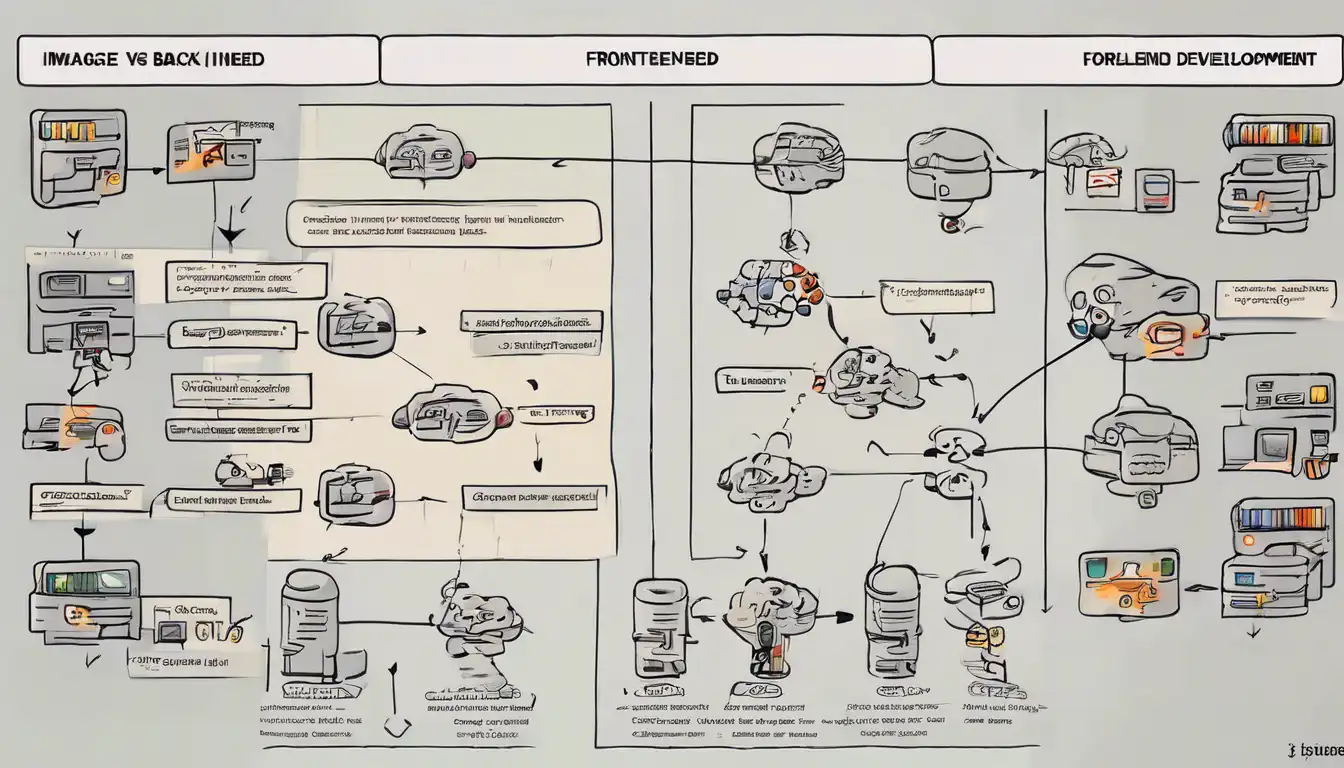Understanding the Differences: Frontend vs. Backend Development
When diving into the world of web development, one of the first distinctions you'll encounter is between frontend and backend development. Both are crucial for building websites and applications, but they focus on different aspects of the development process. This article will explore these differences, helping you understand which path might be right for you.
What is Frontend Development?
Frontend development, also known as client-side development, involves creating the part of the website that users interact with directly. It's all about the visual aspects and user experience. Frontend developers use languages like HTML, CSS, and JavaScript to bring designs to life.
- HTML structures the content on the web.
- CSS styles the content, making it visually appealing.
- JavaScript adds interactivity, making websites dynamic.
For those interested in design and user experience, frontend development offers a creative outlet. Tools like React, Angular, and Vue.js are popular among frontend developers for building responsive and interactive web applications.
What is Backend Development?
Backend development, or server-side development, focuses on the server, database, and application logic. It's the engine room of the website, ensuring everything runs smoothly behind the scenes. Backend developers work with languages like Python, Ruby, Java, and PHP, along with frameworks such as Django, Rails, and Spring.
- Server management ensures the website is accessible to users.
- Database management stores and retrieves data efficiently.
- Application logic defines how the website functions.
If you're fascinated by how things work and enjoy solving complex problems, backend development might be your calling. It requires a good understanding of algorithms, data structures, and system architecture.
Frontend vs. Backend: Which Should You Choose?
Choosing between frontend and backend development depends on your interests and skills. Frontend is ideal for those who love design and creating user-friendly interfaces. Backend suits those who prefer working with data, algorithms, and server-side logic.
However, many developers choose to become full-stack developers, mastering both frontend and backend development. This versatility makes them highly valuable in the job market.
SEO Optimization for Developers
Whether you're a frontend or backend developer, understanding SEO principles can enhance your projects. For frontend developers, this means optimizing website structure and content for search engines. Backend developers can improve site speed and performance, which are crucial for SEO rankings.
Both roles play a part in creating websites that are not only functional and beautiful but also rank well on search engines. By collaborating, frontend and backend developers can achieve the best results.
In conclusion, both frontend and backend development are essential for building modern websites and applications. By understanding the differences and synergies between them, you can make an informed decision about your career path or project needs.
